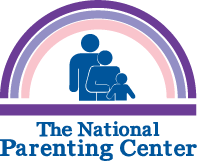HOW IT WORKS
A Seal of Approval review involves a multi-step process conducted over an eight-week period.
Parents and children, experience and review submitted products and services either already released or coming to market.
Participants fill out questionnaires for each product or service they test. They score based on 13 levels of criteria including quality, appeal, design, price, packaging, directions, desirability, stimulation, replay factor, and more. Results are based on both statistical averaging and comments received by testers.
There are three testing periods each year:
| Report Period |
Testing Begins |
Submission Deadline |
Testing Ends |
Report Issued |
| SPRING ’24 |
February 15th |
March 13th |
April 19th |
May 8th |
| FALL ’24 |
June 1st |
June 24th |
July 31st |
August 15th |
| HOLIDAY ’24 |
September 1st |
September 24th |
October 31st |
November 15th |
Each submission must be accompanied by a $295 product testing fee (we offer multiple submission discounts). This fee covers the cost of testing, nothing more. It is non-refundable and has no bearing on the result of the testing. Additionally, we require three samples of the product or access codes for online submissions.
FYI about the Seal of Approval
* The Seal’s winners will be announced in a media release distributed to over 4,700 media outlets, including Facebook, Mommy bloggers, TV stations, newspapers, and parenting influencers.
* The report is forwarded to buyers at over 350 major retail and online stores including Amazon, Walmart, and Target. Amazon features Seal winners on product pages.
* Each report is featured on TNPC’s website as well as TNPC’s Twitter & Instagram accounts and Facebook Page.
* Links to company websites and a license to utilize the trademarked Seal of Approval artwork on marketing, packaging and web design are available exclusively to Seal winners for additional fees.
* Submitting a product does not secure or guarantee being awarded a Seal of Approval
To submit a product click here.
HOW IT WORKS
A Seal of Approval review involves a multi-step process conducted over an eight-week period.
Parents and children, experience and review submitted products and services either already released or coming to market.
Participants fill out questionnaires for each product or service they test. They score based on 13 levels of criteria including quality, appeal, design, price, packaging, directions, desirability, stimulation, replay factor and more. Results are based on both statistical averaging and comments received by testers.
There are three testing periods each year:
| Report Period |
Testing Begins |
Submission Deadline |
Testing Ends |
Report Issued |
| SPRING ’23 |
February 15th |
March 10th |
April 24th |
May 10th |
| FALL ’23 |
June 1st |
June 23rd |
July 31st |
August 16th |
| HOLIDAY ’23 |
September 1st |
September 22nd |
October 30th |
November 15th |
Each submission must be accompanied by a $295 product testing fee (we offer multiple submission discounts). This fee covers the cost of testing, nothing more. It is non-refundable and has no bearing on the result of the testing. Additionally, we require three samples of the product or access codes for online submissions.
FYI about the Seal of Approval
* Winners of the Seal will be announced in a media release which is distributed to over 4700 media outlets including Facebook, Mommy bloggers and TV station websites.
* The report is forwarded to buyers at over 350 major retail and on-line stores including Amazon, Walmart and Target. Amazon features Seal winners on product pages.
* Each report is featured at TNPC’s web site as well as TNPC’s Twitter & Instagram accounts and Facebook Page.
* Links to company websites and a license to utilize the trademarked Seal of Approval artwork on marketing, packaging and web design are available exclusively to Seal winners for additional fees.
* Submitting a product does not secure or guarantee being awarded a Seal of Approval
To submit a product click here.
PLEASE SELECT YOUR REGISTRATION TYPE
[sg_popup id=”52264″ event=”click” wrap=”span”]A COMPANY SUBMITTING FOR REVIEW[/sg_popup]
OR




